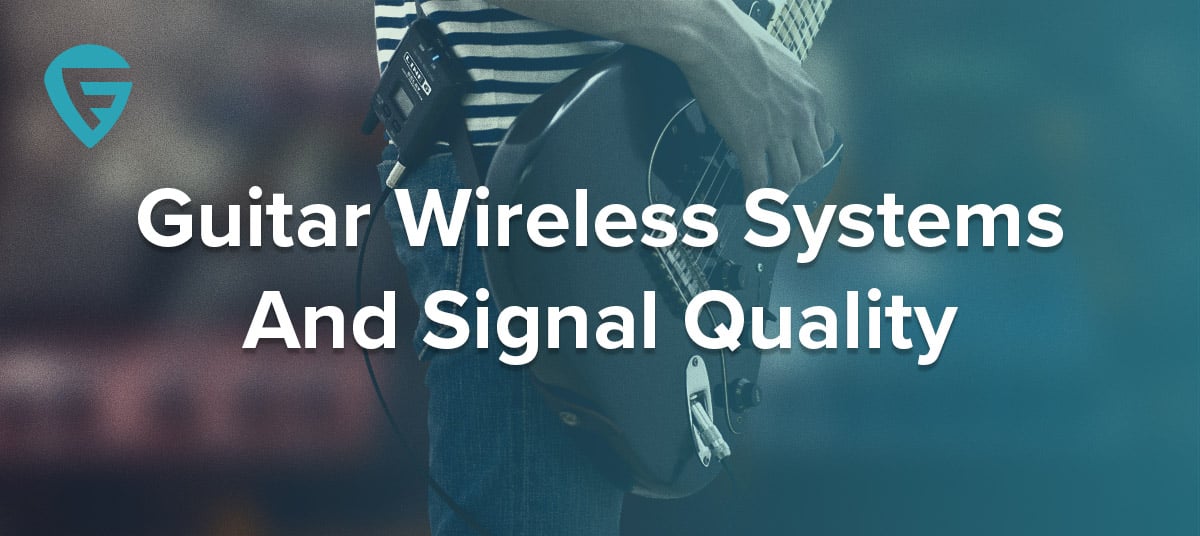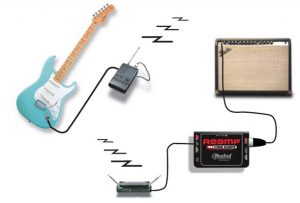- Home
- Instruments
- Gear
- Recording
- Lessons
- Reviews
- Blog

For a guitar player, there is rarely anything that is even remotely important as the quality of their tone. As you progress and expand your knowledge, you will start investing a lot of time into dialing the perfect sound for your guitar. Many people spend a lot of money on different effects pedals and other devices just so they could achieve this level of tone quality. This is actually one of the major reasons why a good portion of guitar players refuse to go wireless, even though they can.
The biggest concerns most guitar players have when it comes to going wireless is the quality of the signal. In the minds of some people, as soon as you remove the cable from the equation, the quality of your guitar's tone will suffer to a point where it's no longer the same. To be completely fair, this used to be a problem with earlier versions of guitar wireless systems. However, that is definitely not an issue anymore.

Audio community in general, including audiophiles who are only interested in speakers and such, is still reluctant to accept wireless as a valid alternative to cables. It is still believed that the best quality of sound can only be achieved if you the signal travels through a cable. For example, this is why Bluetooth speakers are somewhat shunned by the audio community. This is a valid argument, but in the case of guitar wireless systems, it's not really a justified one considering what modern units of this type are capable of.
A lot of modern wireless guitar systems are able to establish a reliable link between the receiver and transmitter. Using different frequencies, they are capable of eliminating almost any form of interference and signal drop.
If you want to learn more about how guitar wireless systems work, you will find all of the answers you need in our article here ‘How Does a Wireless Guitar System Work'. On top of a reliable connection, more advanced models (which are definitely the ones you want to go for) are capable of emulating the effects different types of cables make on the tone. This means that not only is the signal quality unhindered, but you can also apply a filter that makes it sound more organic.
 In general, you definitely don't need to worry about the loss of signal quality when dealing with guitar wireless systems. There are some other issues that are much more important than this. Going wireless will cause the impedance of your guitar's signal to change.
In general, you definitely don't need to worry about the loss of signal quality when dealing with guitar wireless systems. There are some other issues that are much more important than this. Going wireless will cause the impedance of your guitar's signal to change.
What this means in practical terms is that some guitar effects pedals may react differently. However, this impact is either marginal or rare enough to not be an issue. That is the only thing that comes to mind regarding wireless guitar systems and quality of tone.
The misconception that going wireless will impact your signal for the worse appeared when this technology was still in its infancy. Just like it's the case with anything else, it takes time until the new tech reaches a level of evolution where it becomes practical. Many will argue, including us, that wireless guitar systems have reached that point in their evolution.
Whether or not using guitar wireless systems is something you should do depends on a number of factors. If you opt to go for a more affordable system that has fewer features and only uses a single frequency to work, you will probably run into a number of issues, signal quality being the least of them. With that said, cheap wireless systems are something you should avoid using for more than one reason.
A lot of bad rep that this technology gets comes from people who didn't want to invest in a solid unit and then went on to complain how they had a lot of problems with the basic models they ended up getting. Over time, these bad experiences caused a number of people to give up on this technology altogether.
With all this stuff out of the way, feel free to dive into the meaty bit and check out our list of Best Guitar Wireless Systems on the market today.

Reader Interactions